|
2/6/2023 0 Comments Solstice OfferingsPerhaps you have been following along with this blog as someone interested in completing the Indigenous Death Doula training program. Maybe you have attended one of the public speaking events or virtual workshops offered where I was invited to talk about Indigenous death, dying, loss and grief.
This work is an area where I have cast my heart, countless hours spent curating an offering to Indigenous caregivers that I had promised way back in 2020. Foolishly, I thought I could drive deadlines and tasks to completion like I do with everything else. This training is more than a program, it is an offering of care to Indigenous people everywhere. I thought obtaining funding would mean we could bring this training into reality and while this truly did make a difference, it was only one aspect of creating this community experience. Now, with the training close to launching, I am moved by all the teachings I have added to my bundle. What an experience this has been. I found myself mourning while working on the training's content. This past year, my uncle and aunts departed from this world. Some of these relatives felt more connected to me than others. This too was cause for reflection as I answered queries about education for the dying and coping with grief. I worry about missing out on moments of connection with the generation before me. Do they know how grateful I feel for the unconditional love they gave me? With all of these deep pensive moments, I was surprised to find myself pregnant. A welcomed surprise, my husband and I were ecstatic to learn we were expecting and before long we had vitamins ready, names picked out and a doctor's appointment scheduled. In our excitement, we shared our news wide and far. We told our families, our workmates, our favorite taco restaurant staff. Our joy was short-lived and I will never forget the moment I understood that a miscarriage had taken place. My doctor was, and always is, amazing. I wish everyone could have a doctor like I her. She expressed her condolences and bolstered our broken hearts by sharing statistics (we are research-loving, data people) and encouragement to begin trying to conceive. Getting pregnant at all was a confirmation of our fertility. Armed with a positive outlook, I tried my best to carry on. Helpers reached out with their messages and teachings from ancestors, enveloping me and my family in love. Despite the teachings I carry in my bundle about reproductive health, mental wellness and healing, none of this insight seemed to relieve me of my grief. Here I was working away at creating tools to support others coping with loss, simultaneously struggling to find solid ground in the wake of losing our baby, of losing my uncle, and then my aunts, and the vibrance they brought to our family. I felt the weight of multiple losses, compounding on my shoulders and in my heart. What truly helped disperse the clouds and helped me cope was the many lovely friends and family who took a moment to share stories of their own pregnancy losses. What a terrible club to belong to, yet I am so grateful to each and every person who took a moment to disclose their membership and mirror what we were going through. All at once, I understood the journey that creating this training had become. By connecting and supporting each other, there is always care and love to get through the darkest times. Even though this training has taken far longer to launch than anticipated, I am excited to invite the previous Indigenous mentees to form the first cohort in time for Summer Solstice. A humble offering from my laptop to yours, with the help of many, many incredible knowledge carriers will arrive just when it's meant to. chii miigwetch for reading, sharing and commenting.
0 Comments
2/6/2023 0 Comments Who are you?It seems like an easy enough question. For most First Nations, Inuit, and Metis people this is a question that we have come to expect from new faces that also belong to these communities.
Who claims you? This question once made me stammer out the word Pikwakanagan and it took memory games to help me remember the proper way to share the name of the community on my status card. Eventually, I would become known to some people from my ancestral community and I am proud to claim my mother and grandfather's name Sarazin, his mother's name Buckshot, her mother's name Lemure, and her mother's name Pessindiwate, and her mother's name Whiteduck. Today, I am proud to know the names of 14 generations of my Algonquin grandmothers. It is not knowledge I always possessed and their names are part of my ceremonies and the guidance I know is with me, through everything on this journey. Where do you come from? A question that was infinitely harder for me to answer as I later learned that my life had been formed in transit, never living more than five years in one place. Two years here, one year there, oh-time to move again. I became vague in my response and told people I had grown up between Thunder Bay, Montreal and Ottawa. I didn't care to explain all the small towns I had grown familiar with in my one, two and five year stints. All of the small towns in Ontario like South Gillies, Manitouwadge, Caramat, Winchester, Mattawa, Russell. These places didn't remember me and some I tried to forget. It was easier to explain my life when I said I was a city girl. My time in cities had consisted of bouncing from one parent's home in Thunder Bay, to the other's in Ottawa. In Thunder Bay I attended high school for grade eleven and managed to pick up an English credit for grade 12. Who are you? It's a question I haven't always known how to answer and when I did, there seemed to be intricacies that I wasn't aware of. There were teachings I was missing and it showed. The first time I met someone else from my community, it was in Toronto and she was not impressed. She taught me that I couldn't say I was 'from Pikwakanagan' because I had never lived there. She was harsh and she was right. I was from so many places and nowhere, all at once. If you are supposed to answer the question of who are you by acknowledging the place that you are from, I didn't know where to start. Eventually, I would answer this question by moving back to where my mother's family was from. Generations of my grandparents' relatives have been married and buried where I too was married, and one day will be buried. Who is your family? When I worked at KAIROS Canada, this question was posed to me by other Indigenous people I encountered. "Who is your mother?" An Inuk Elder asked. She wouldn't know my Algonquin mother, but I answered the question anyway, as I had learned to do, without hesitation. When she asked me again a few hours later, I felt annoyed but answered again. Over and over this woman interrogated me and I found myself wondering at her motivation. There are many raceshifters who have found success and acceptance in faithful spaces. When I think back, I am happy to know this question is being asked by these Elders, with insistence and relentlessness. It doesn't matter what compels someone to ask, it is my responsibility to always answer and I do, each and every time. This is accountability is a teaching I carry and share. These are the questions I ask when someone presents themselves as First Nations, Inuit, or Metis and express interest in working with me. And I also expect an answer. If someone wishes to occupy space as an Indigenous person, they should have no problem answering questions. A person should have no issue with me asking my contacts from the community you claim to belong to, in order to confirm you are who you say you are. Today, I found myself reflecting on the ways I have practiced accountability and the moments where collaborators on my path have not practiced this same value. Visit this archive to learn more about me and my journey, the works and collaborations I've enjoyed being a part of and birthing into life. Chrystal 'Waban' Toop Archive This past weekend has been difficult for many and I am no exception to this. The Freedom Convoy made it's way through my community and onward to Ottawa. Once there, this group was reported on by many bystanders for waving symbols of racism, openly breaking laws and bylaws, and mocked First Nation drummers and singers by chanting and banging drums. While I won't get into the problems of this movement, or why it's not okay to support social action taken in support of racism, I do want to discuss something I come across often in my different fields of work.
Cultural appropriation is not respectful practice. Imitation is not always a form of flattery. Time and time again, I find myself in specific training around funerals or end-of-life practices and these trainings are facilitated by white death workers. I am always shocked at the ease with which these practitioners culturally appropriate ceremonies to offer in their private practices. As a First Nations-mixed woman with white privilege, I am particularly sensitive and aware of the importance of positionality and community recognition. It is common for me to provide proof and verification of my community connections with the Algonquins of Pikwakanagan First Nation and this is something anyone who IS actually First Nations, Inuit, and Metis has the ability to grasp. In death work, many of my peers find no problem with smudging, carrying sacred items and practicing their own version of cultural ceremonies. I've heard the decision to use these traditions validated and quantified by white practitioners in all sorts of ways. The most common justifications are: 1. I learned these from an Elder/Teacher who gave me permission to use these practices. Elder/Teacher has passed on and claims are not verifiable. 2. It's okay, I have Indigenous ancestry. 3. I only do it for people at end-of-life, when it brings great comfort. The reality is that these justifications are massive red flags of cultural appropriation. For each of these harmful end-of-life care providers, there are as many working to center voices of Black, Indigenous, People of Color in ways that are meaningful and impactful. By speaking out against these moments of cultural appropriation, they are practicing allyship in an important form. Cultural appreciation is practiced by allies who insist on an actual First Nations spiritual practitioner or end-of-life doula being engaged and compensated for their knowledge, time and travel. Here are some helpful strategies when practicing allyship around end-of-life care. These tips are widely applicable to many situations and I am always happy to engage in discussions that promote and center the good steps taken by allies looking to do better. 1. Hire a First Nations, Metis, or Inuit death doula, counsellor, cultural practitioner to facilitate healing, ceremonies, and rituals like talking circles, smudging with traditional medicines, or drumming and singing. Blackbird Medicines is comprised of numerous First Nations spiritual practitioners, teachers, helpers, singers and drummers. We are always happy to provide these services and have many options available, regardless of cultural background and will ensure your end-of-life arrangements are respectful and appropriate. 2. Ask for community references from the Indigenous community. A letter from a federally recognized First Nation or Friendship Center are great. Blackbird Medicines offers genealogical services at an affordable cost for people who are seeking information on their background and will provide a letter of support regarding validated genealogical claims. 3. Ask for genealogical background. A general and vague association with a single or many communities is a red flag. Blackbird Medicines offers genealogical services at an affordable cost for people who are seeking information on their background and will provide a letter of support regarding validated genealogical claims. If you need additional resources, please don't hesitate to reach out. We can all use help to do better when moving forward. 2/6/2023 0 Comments That doula revolutionYou may have heard me speak or read something written by me where I spoke about training to become an Indigenous Full Spectrum Doula.
You may have heard about Doula work and the important impacts this role is having for families and health care navigation. I'm excited to be a part of the Cornerstone Birthwork Training team with Capstone Canada. This training is fullsome and radical-two of my favourites qualities. Sign up for this year's first cohort and learn what's in your Doula bag. REGISTER HERE: https://cornerstonedoulatrainings.teachable.com/p/capstone-canada-feb 2/6/2023 0 Comments DYING WITH DIGNITYRecently I was honoured with an invitation to present at the virtual conference Reflections on Death and Dying: Creating Space for end-of-life conversations.
I was nervous to address this audience and this is far from typical for me when speaking in public. How many people would sign up? Would the words I share resonate? How would I be received when I started in on systemic oppression and capitalism creating harm and trauma for people? As the attendee count climbed past 120, and higher, my nerves began to abate. Idling at 188 participants, the organizers decided to start and began to introduce me by reading my bio. The bio is always too long and I find myself making mental notes to trim it back and before the thought can land, I am bolstered at my own history. I've survived so much and that is exactly what I am here to talk about. Indigenous people have survived so much, to enjoy this privilege of life and I'm going to begin this mostly one-sided conversation with my ancestors on my shoulder. They are guiding me in this sharing and so I take a deep breathe. I begin. The first Annual Day of Care & Healing took place virtually with the support of my coworkers at the Algonquins of Pikwakanagan Mental Health Team and Victim Services of Renfrew County.
For some of us who are staff and community members, this day was about realizing a dream of offering a community-led moment of healing. This day was an important chance to connect with Indigenous and non-Indigenous community members and show Renfrew County what services are available. The planning team worked hard to make this day possible with funds from the Department of Justice Canada and technical facilitation offered by Dpearce Productions, a First Nations owned business. Algoqnuin Elder Roberta Della-Picca opened our event by grounding us with Sema teachings and a mindful practice to reconnect with our bodies. My own session was about embracing the Winter Medicines in preparation for the cold nights ahead, followed by a chaga tea medicine tutorial. Tasheena Sarazin shared her beautiful music throughout our day and provided teachings on the power of using our voices. Joseph Pitawanakwat of Creator's Garden helped to end the day with plant medicine guidance for healing. We are so grateful to all of the partners who helped realize this day of healing and care and we are humbled at the response of attendees. There is no limit to what our community is capable of and we're excited to do it all again next year! 2/6/2023 0 Comments Registration Maxed outLike many of our ideas at Blackbird Medicines, this idea of a grief support group exploded unexpectedly with interest from across Turtle Island.
The awesome Indigenous Death workers who make up the Indigenous Death Doula Collective had an idea. An idea to offer some support over some of the most difficult months of the year. Why so difficult? December and January are extremely busy times for death and grief workers. For those who have lost loved ones, the holidays are a time of year that we think about their absence or maybe the traditions that are changed by their loss. It can be a time heavy with grief and sadness. With the holidays of 2020 on our minds, we created this offering for community with a plan to welcome 12 participants. We hoped we would get at least 8 people who wanted to come together to discuss grief and loss as part of the annual Winter Medicine teachings we offer. We could have guessed what would happen next. We didn't, but we could have! Within hours of the registration form going live our hopes were fulfilled with 24 registrations. We collectively discussed how to accommodate twice the amount people. A few more days went by and registration hit 44 people. We announced that registration was closed and our total reached 50. This time of year cold embraces most things in the north and these Winter Medicine offerings are a hug of warmth for spirits weary by months that have gone by. Some of us brace for the long nights and cold, others look to it as respite from the hurried expectations of the long, warmer days. If you missed out on registration for the December 2021-January 2022 Grief Workshops, please know that another opportunity will come! We're so excited for the upcoming January release of our Indigenous Death Doula Training and Certification program and know that NDN country has been waiting patiently too! |
About ChrystalMy pen name is Chrystal Waban and I am a member of the Algonquins of Pikwàkanagàn First Nation. ArchivesCategories |
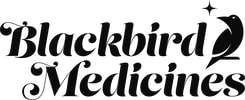

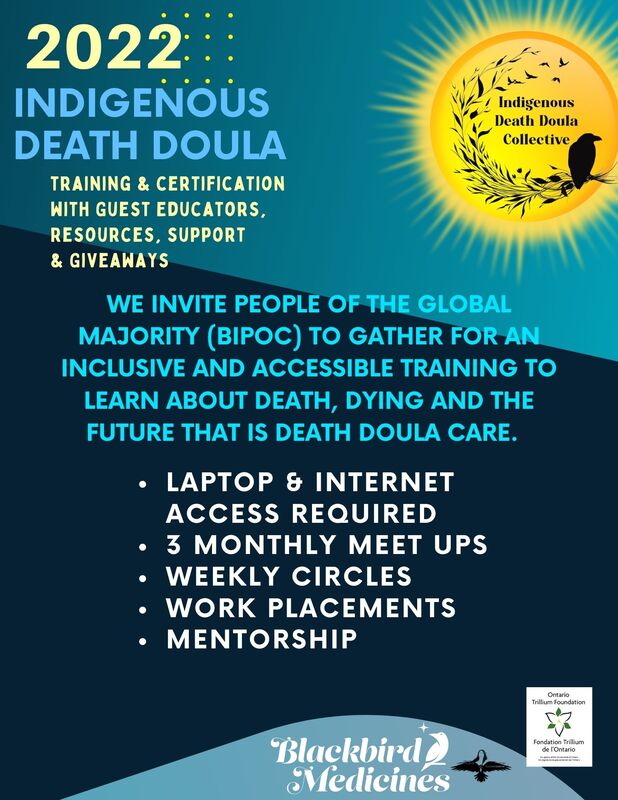
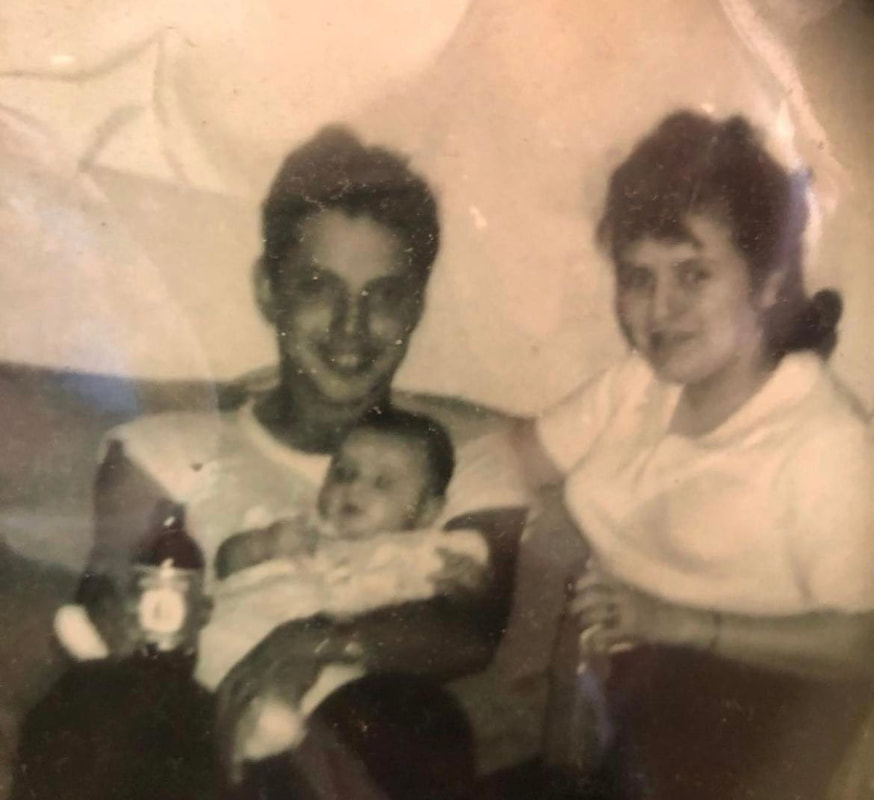
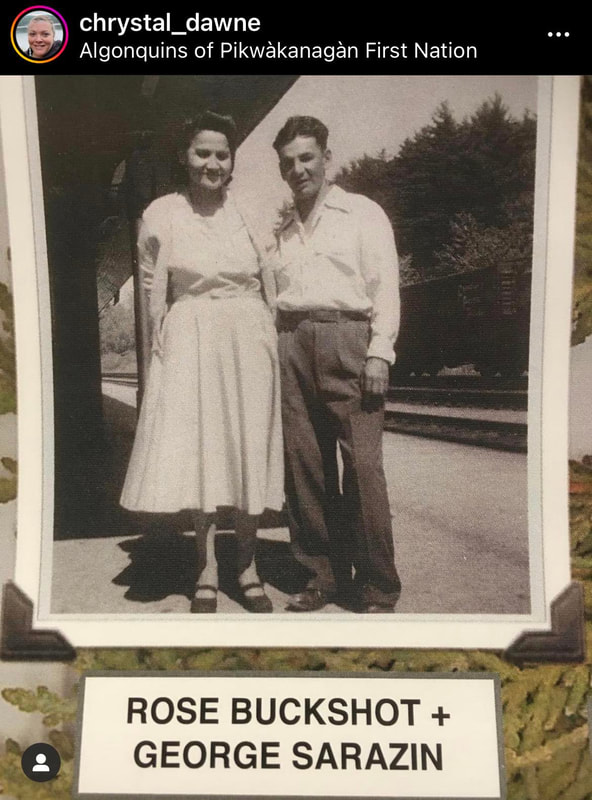
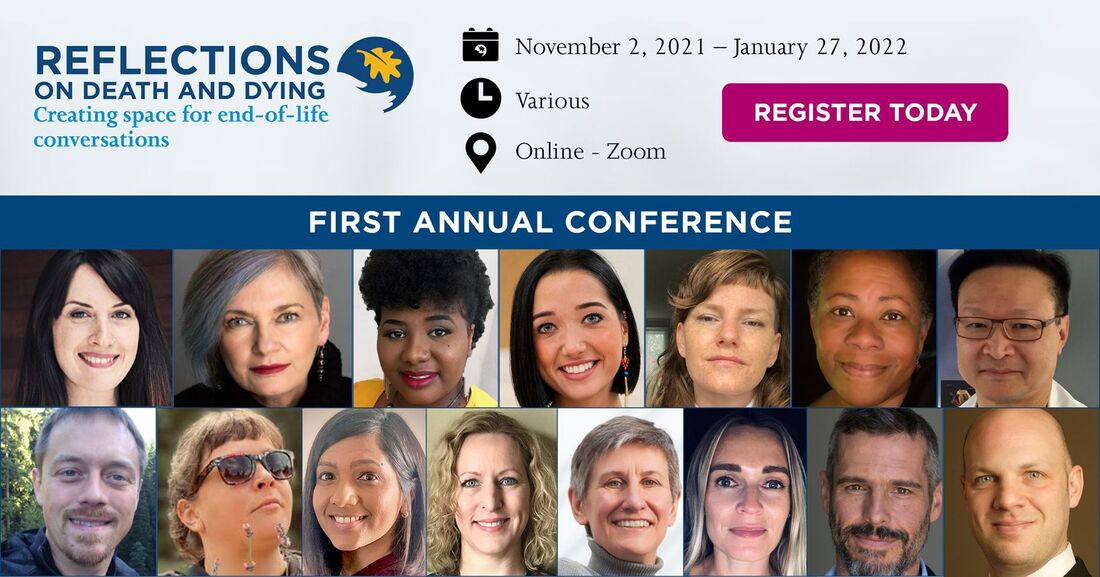


 RSS Feed
RSS Feed